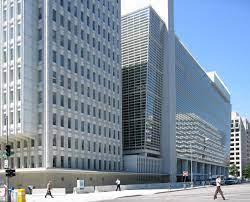The World Bank has revised upwards Zimbabwe’s economic growth projections both for 2023 and 2024 in its latest Global Economic Prospects report released last week.
The Bretton Woods Institution says Zimbabwe’s gross domestic product (GDP) will now grow by 3,5 percent for 2024 up from its forecast of 3,4 percent made in June last year.
This is in sync with Treasury projections that the local economy will grow by 3,5 percent in 2024.
In his 2024 National Budget Statement presented in November last year, Finance, Economic Development and Investment Promotion Minister Mthuli Ncube said economic growth is expected to slow down to 3,5 percent in 2024, “owing to the anticipated impact of the El Niño phenomenon being forecasted for the 2023/24 summer cropping season on agricultural output, as well as declining mineral commodity prices attributable to the global economic slowdown.”
In November last year, the IMF also projected Zimbabwe’s GDP to grow by 3,5 percent slowed down by weaker global demand for minerals and a weather-related impact in agriculture.
Market watchers say the anticipated impact of the El Nino phenomenon being forecasted for the 2023–24 summer cropping season on agricultural output and declining mineral commodity prices attributable to the global economic slowdown will result in an economic slowdown this year.
While the Zimbabwe economy is poised for growth, the global economy is on course to record its worst half decade of growth in 30 years, according to the World Bank,
Global growth is forecast to slow for the third year in a row in 2024, dipping to 2,4 percent from 2,6 percent in 2023, reads part of the Global Economic Prospects report.
Growth is then expected to rise marginally to 2,7 percent in 2025, though acceleration over the five-year period will remain almost three-quarters of a percentage point below the average rate of the 2010s.
And despite the global economy proving resilient in the face of recessionary risks in 2023, increased geopolitical tensions will present fresh near-term challenges, the Word Bank said, leaving most economies set to grow more slowly in 2024 and 2025 than they did in the previous decade.
On the other hand, the International Monetary Fund (IMF) predicts a soft landing scenario in 2024 for the global economy.
Fund’s spokesperson Julie Kozack in a statement said: “We have had a relatively resilient global economy so far. We expect that resilience to continue into 2024.
“At the same time, inflation is coming down. Labour markets continue to be resilient and of course, the news is not all good because this resilience with growth, hovering around 3 percent both last year and over the expected over the medium-term, that is much lower than previous global average growth rates, which were about 3,8 percent,” said Ms Kozack.
She, however, warned that leaders should be preparing for future shocks and challenges.
Ms Kozack added that they do have work to do to lift global growth, especially over the medium term.
The IMF spokesperson said Africa is projected to be the second-fastest-growing economic region in the world as they await releasing their projections at the close of this month.
SOURCE ; ZIMBABWE SITUATION









